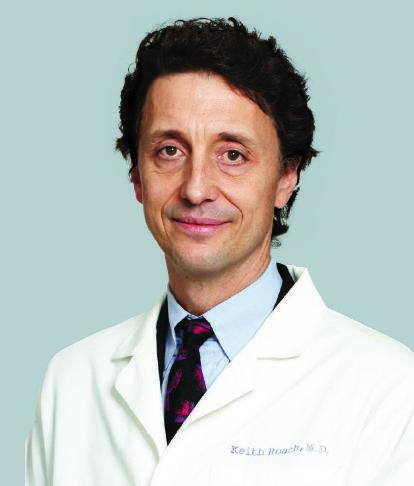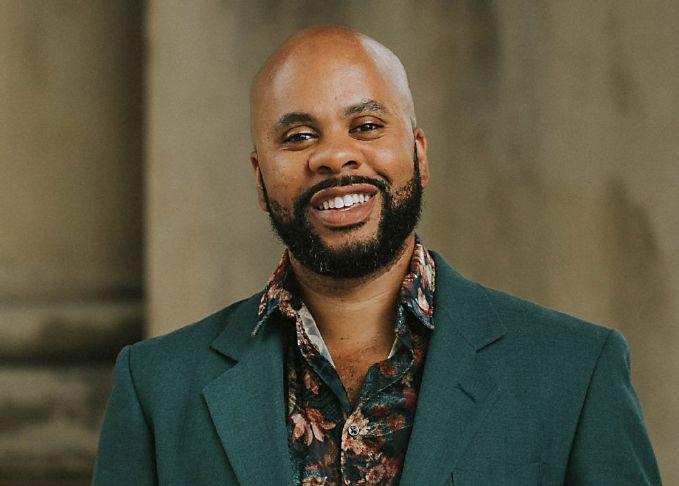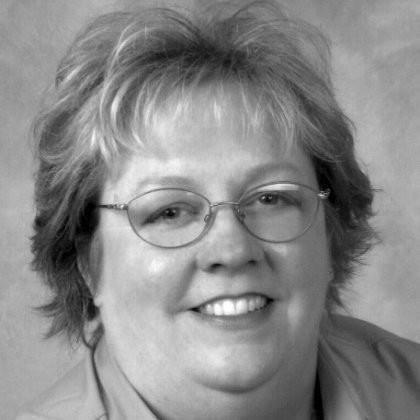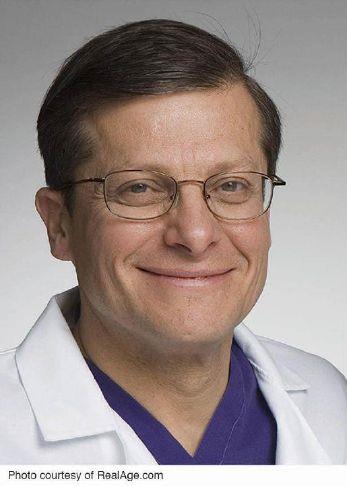
August 2024


Doctors give conflicting advice regarding calcium supplements
DEAR DR. ROACH: My primary care physician wanted me to stop taking calcium (and the vitamin D that accompanies it) due to risks such as kidney stones. However, my endocrinologist, whom I see for thyroid issues (I'm currently on levothyroxine), thinks that I should continue with it.What does one do when doctors give conflicting advice? What are the risks if I continue? I'm taking two Citracal tablets each day with 4,000 units of vitamin D. As of late, I have not been taking it very regularly at all. What damage am I doing? -- D.H.ANSWER: Calcium and vitamin D are necessary for bone health, but unless a person is severely deficient or has a condition known to improve with vitamin D, giving supplements has not been proven to be of much (if any) benefit. There is a small risk of kidney stones with calcium supplements and a possible increase of the risk of heart disease. (There's conflicting evidence on heart disease.) So, unless there is a strong reason to use calcium (such as osteoporosis), I don't recommend calcium supplementation, although I do recommend calcium in my patient's diet.Paradoxically, dietary calcium decreases kidney stone risk, even though calcium supplements increase the risk. (It's thought to be the high amount in the blood after taking the supplement.) Although vitamin D may not be helpful for most people, it is seldom harmful at doses below 8,000 units daily.When your physicians disagree, it's OK to ask them to discuss it. I never mind calling my patients' expert consultants, and the newer medical record systems can make it very easy to briefly communicate.DEAR DR. ROACH: What are the symptoms of Clostridioides difficile (C. diff)? -- A.T.ANSWER: C. diff is an unfortunate, all-too-common gastrointestinal infection. The cardinal symptom is watery diarrhea, often with fever and abdominal cramping. C. diff is usually associated with antibiotics that kill healthy bacteria in the gastrointestinal tract, which allow C. diff to take over. However, not all cases are associated with antibiotics. Just being in a hospital (or recently having been in one) is a risk, as is being older.The spectrum of C. diff runs from asymptomatic (a few percentage of people have bacteria in their colon all the time without problems) to mild disease to severe and life-threatening disease. Looking for C. diff is only appropriate in people with a new onset of diarrhea (a usual criterion is three watery bowel movements in a day) with no other explanation, especially if they have one of the risk factors that are listed above. C. diff is more likely in people taking proton-pump inhibitors like omeprazole, and it is one more important reason as to why physicians shouldn't prescribe antibiotics lightly.* * *Dr. Roach regrets that he is unable to answer individual letters, but will incorporate them in the column whenever possible. Readers may email questions to ToYourGoodHealth@med.cornell.edu or send mail to 628 Virginia Dr., Orlando, FL 32803. (c) 2024 North America Syndicate Inc.All Rights Reserved
Great Bend Economic Development enrolling for Fall Session of CO.STARTERS Core Program for Entrepreneurs
Great Bend Economic Development, Inc. (GBED) is excited to announce the upcoming CO.STARTERS Core program, a ten-session, cohort-based initiative designed to equip entrepreneurs of all kinds with the insights, relationships, and tools needed to turn their business ideas into action. This program will run from September 18th through November 20th.

Asking Eric: Brother banishes atheist sibling from home
Dear Eric: My brother and his family are born-again Christian. I stayed with him in his hometown for about a week while I was having surgery to remove my prostate.

Kansas v. Missouri stadium battle shows how states are reigniting border wars
For decades, academic research has been clear: Taxpayers almost never get their money back on subsidized sports stadiums.

Heart of a Tiger – Celebrating Success: Fort Hays State University's Strategic Plan 2019-2024
As Fort Hays State University (FHSU) gears up to launch its new strategic plan for the years 2024-2027, let’s reflect upon and celebrate the accomplishments of the 2019-2024 plan. Titled “Unlocking Untapped Potential,” the previous plan served as a comprehensive roadmap developed with the insight and contributions of the entire university community. Centered around five key goals—Academic Excellence, Student Success, Strategic Growth, Resources and Infrastructure, and Community and Global Engagement—each initiative was designed with specific, measurable outcomes in mind.

The Lowe Down: The power to hire and fire . . .
Applying for a job can be simultaneously nerve-racking and exciting. If you’re lucky enough to be called in for an interview, you want to put your best foot forward. You want to demonstrate your knowledge and expertise concerning the position to the best of your ability. Your resume should detail your accomplishments. Charm is a good instrument to have in your toolbelt of skills to open the door, but after 10-15 minutes you better know a little something about the position and be able to express your abilities. You have to be able to answer hard hitting questions asked during an interview. And while you don’t have to possess 100% of the job’s requirements in order to apply, you should have 75% at the very minimum, especially if the job you’re applying for is President of the United States.

August Hays Happenings
Summer may be winding down but according to Convention and Visitors Bureau (CVB) Executive Director Melissa Dixon, community events aren’t slowing down in August.
Save the Date
During the July 30, 2024 City Press Briefing, Convention and Visitors Bureau (CVB) Executive Director Melissa Dixon urged residents to mark their calendars for events coming up in Sept., Oct., and Nov to “Save the Date” for the Hays Prairie Winds Kite Show, the Volga German Oktoberfest, and the Downtown Holiday Open Houses.

Don't let OA lead to other problems; exercise to clear brain fog
Q: My arthritis is getting worse, and my doctor says I have to fight against letting it slow me down. My joints hurt, so how can I do that -- and why would I want to? -- Patty R., Evansville, IndianaA: Osteoarthritis (OA) is a degenerative disease in which the tissues in your joints, such as cartilage, tendons and ligaments, break down over time, leading to bone damage. For many of the 30 million Americans with the condition, the pain that OA causes interferes with mobility -- and that then causes its own set of problems, including increased pain, weight gain, depression and a whole bunch of other serious conditions.A study in the journal RMD Open found that over 20 years, folks with OA are almost three times more likely to develop one or more other serious conditions than folks who don't have OA. The most frequent comorbidities are back pain, diabetes, mood disorders, heart, kidney and lung disease, cancer and cataracts.The good news is that there is solid evidence that increasing physical activity reduces OA pain, increases mobility, and helps prevent associated complications. Harvard Medical School recommends a combination of 1. flexibility/range of motion exercises -- but without causing pain; 2. muscle-building exercises using your own body weight or resistance bands; and 3. low-impact aerobics like swimming, walking or using an elliptical trainer. That trio provides the best push-back against sore joints and helps you maintain a healthy weight while you protect your internal organs from chronic conditions and cancer. For info on how to best get into these different types of activities, check out "The RealAge Workout" and Dr. Mike's book "The Great Age Reboot." Also, ask your doc about taking ASUs (avocado soy unsaponifiables). It's a disease-modifying supplement that stops the progression of osteoarthritis. And to understand how adopting a diet that fights inflammation -- combined with physical activity -- can boost your return to a healthier, more mobile daily life, explore the iHerb.com blog "Natural Joint Support."* * *Q: Some days, I feel like my brain is turning to mush. I'm only 62 but I forget words or where I put the car keys or my phone. It may be related to stress at home and work, but whatever the cause, I want it to stop. Suggestions? -- Gregory Y., Urbana, IllinoisA: There are many causes of cognition problems, but you indicate that yours are from stress. Well, stress -- especially chronic relationship stress -- is the most common cause of cognition problems. The Cleveland Clinic Wellness website explains that it's because it can affect your nutrition (you may eat excess comfort foods or skip meals), sleep patterns (you may sleep too much or not enough) and physical abilities (you get a sore back or stiff neck), and all that contributes to body-wide inflammation and brain fog.You'll be glad to hear that research shows that having some fun playing sports, walking with friends, and sweating without fretting, sharpens your cognition. Moderate-intensity aerobic exercise three days a week increases the size of the hippocampus, your brain area involved in memory and learning, by 2% in a relatively short time. That's enough to undo a couple of years of declining brain function. And according to Harvard Health, research shows that inactive middle-aged adults who walk briskly for 45 minutes five times a week improve their ability to pay attention and their verbal fluency, have a stronger working memory and increase their mental processing speed. In addition, the Alzheimer's Society says regular exercise can reduce the risk of Alzheimer's by 45%. We suggest you start by reaching out to a friend or joining an exercise group in order to get physical activity for at least 30 minutes five days a week. You'll feel more relaxed and think more clearly, as you extend your longevity. For more tips, Dr. Mike's book "The Great Age Reboot" offers 36 ways to reduce your risk of cognitive problems, and take a look at iHerb.com's blog "Fitness for Longevity." * * *Dr. Mike Roizen is the founder of www.longevityplaybook.com, and Dr. Mehmet Oz is global advisor to www.iHerb.com, the world's leading online health store. Roizen and Oz are chief wellness officer emeritus at Cleveland Clinic and professor emeritus at Columbia University, respectively. Together they have written 11 New York Times bestsellers (four No. 1's). (c)2024 Michael Roizen, M.D. Distributed by King Features Syndicate, Inc.
